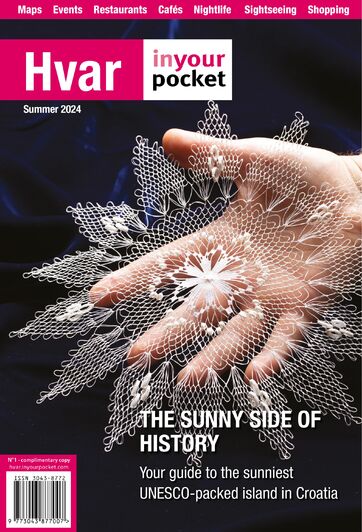There is no shortage of places in Hvar to spend an evening, ranging from elegant cafes with terrace seating to tightly-packed bars with standing room only. A wide range of local and international beers and spirits are available, and plenty of skilled cocktail shakers among the eager-to-please bar-keeping community. The island's key speciality is of course the wine, and there are plenty of wine bars whose knowledgeable staff will guide you through the local varieties and vintages. Cafes and bars in the town close by around 2am, after which taxi boats ferry customers to nearby islands, where the beach-bar scene carries on until dawn.
Wine production is deeply ingrained in the culture of Hvar and - along with olive-growing - remains the one agricultural activity in which most local families retain some kind of connection. Locals are certainly proud of their wine, and, regardless of whether you've been offered someone's home brew or are ordering a particular vintage in a specialized bar, you're unlikely to come across anything that isn't highly palatable.
The wine that Hvar produces most of is Plavac mali, a domestic Dalmatian grape variety that produces a rich robust red wine. It's a vine that thrives particularly well on the island's steep south-facing slopes, where arid soil, intense sunshine and exposure to maritime air produces small grapes full of concentrated flavour. Harvesting these steep-sloping fields is hard, labour-intensive work, and industrial-scale production is hard to fit in to the island's awkward geography, giving the resulting wine a highly-valued boutique quality.
Hvar's standout white wine is Bogdanuša, a variety unique to the island thought to have originated with the ancient Greeks and traditionally cultivated on the Stari Grad plain, where the soil is softer and deeper. Much scarcer than Bogdanuša is Prč, a white wine unique to the area around Sućuraj at the eastern end of the island. Pošip, the golden-coloured white wine originally from Korčula, is also made on Hvar.
Providing the perfect end to an evening out is prošek (not the same as Italian prosecco, despite the similar name), a sweet fortified dessert wine often served cold or with ice that makes the perfect sunset sipping drink.
The island is home to big wine-making concerns like Svirće, who maintain vineyards in the middle of the island and are renowned for producing Croatia's best-priced, mid-range Plavac mali wine: their bottles can be found in supermarkets throughout the country. The last two decades has seen the emergence of several smaller-scale, boutiquey wineries like Zlatan otok in Sveta Nedjelja, Tomić and Duboković in Jelsa, Vujnović in Sućuraj and Carić in Vrboska and Luvij and Colnago in Hvar. Driving around the island you will also see roadside stalls selling wine by small-scale producers - pretty much everything you come across on the island is worth trying once.
And wherever there is wine, there is also rakija or brandy, mostly of the grape variety. Rakija flavoured with local herbs, carob or fig provides a unique island experience. (There are so many figs on the island they can almost be picked straight from branches by the roadside; although be careful here: most fig trees do have an owner.)
Hangin' Out Hvar
Refine your search
Choose Categories
Wineries
Submit


